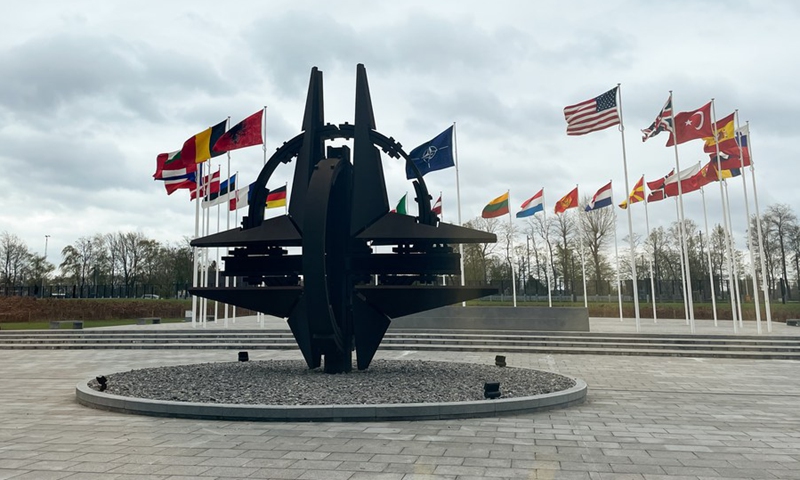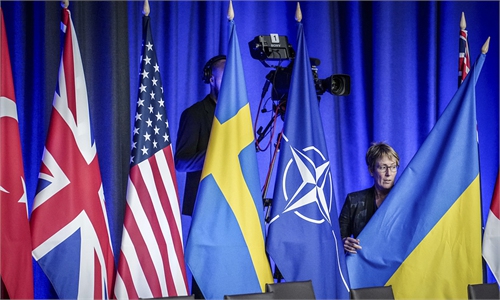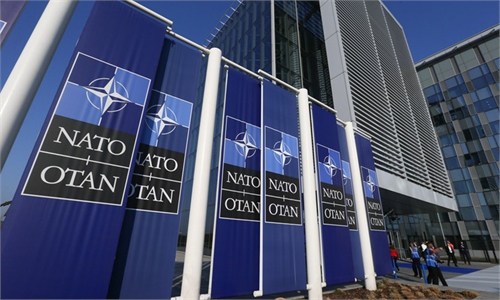
This photo taken on April 6, 2022 shows a sculpture and flags at NATO headquarters in Brussels, Belgium.(Photo: Xinhua)
NATO has confirmed it will set up a NATO-Ukraine council and hold its first meeting in Vilnius on July 12, the second day of the bloc's summit, a move that experts see as appeasing Ukraine due to the bloc's inability to reach a consensus on its admittance. But it could also lead to protraction of the Ukraine crisis.
Offering Ukraine a "more regularized and effective consultative mechanism" with NATO, the alliance has upgraded the NATO-Ukraine Commission to a "Council," and will have its first meeting at the level of heads of state and government, including Sweden, according to media reports.
Ukraine's mainstream newspaper Ukrainska Pravda reported on Wednesday that the announcement means Ukrainian President Volodymyr Zelensky will most likely attend the NATO summit in Vilnius in person.
The level of support Ukraine should get from the alliance and its potential accession process is on top of the agenda for the upcoming summit, but these issues have generated a lot of discord among the group. "With every new day, the level of discussion on the potential outline of the place of Ukraine in NATO takes new heights," said Visegrad Insight, a Central European media outlet.
In September 2022, Zelensky signed the application to join NATO, but was unsurprisingly met with lukewarm reactions from NATO members as they fear being involved in a direct confrontation with Russia.
Lithuania President Gitanas Nauseda has urged NATO leaders to be "bolder in addressing Ukraine's push for membership" at next week's summit, Reuters reported on Tuesday, advising allies to disregard fears that bringing Ukraine into the US-led military alliance would provoke Russia.
However, experts believe that such eagerness to accept Ukraine into the bloc is more of a "bait," aiming to encourage Kiev to continue battling Moscow and leaning toward the West.
"Ukraine has been fully taken over by the West, with even its domestic industries being taken over by Western conglomerates. Therefore, at this point, whether or not it joins NATO makes little difference," Cui Heng, a lecturer at the China-Shanghai Cooperation Organization training base for international judicial exchanges and cooperation, told the Global Times on Thursday,
The upgrade of the NATO-Ukraine Commission into a council also has little substantive significance, the expert said. As long as Ukraine does not join NATO, any such communication mechanism is not meaningful because it is an informal mechanism that has no binding force and can be canceled at any time.
Nevertheless, the set up of the council has provided Ukraine with insurance for the prolonged conflict. In other words, although NATO is not intervening at the current level of the conflict, if the future war reaches a point where Ukraine cannot withstand it, then NATO would have a reason to intervene, Cui noted.


